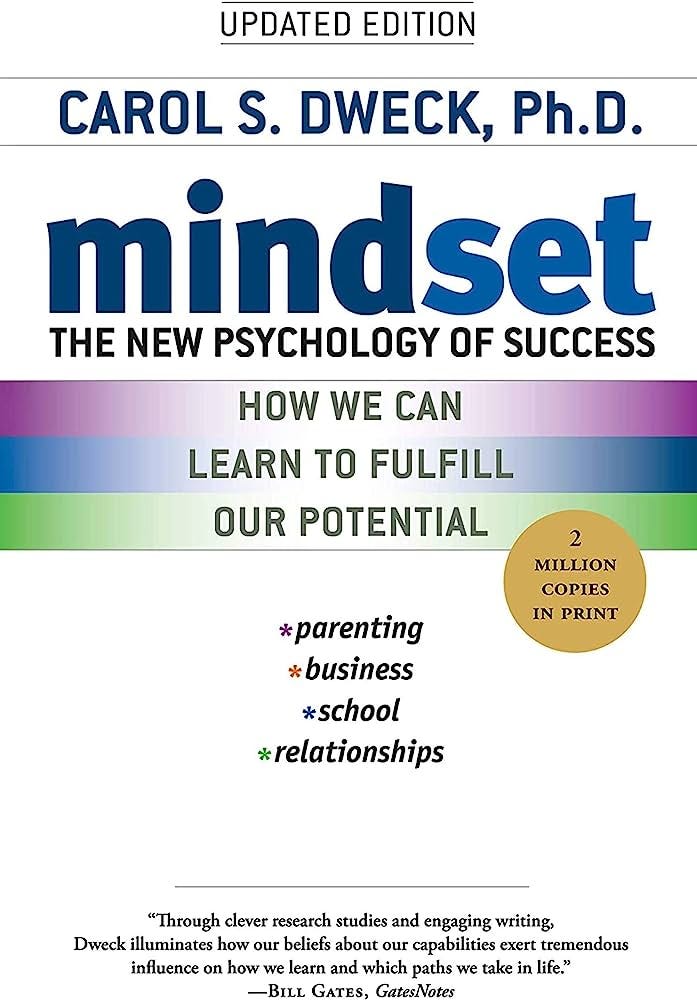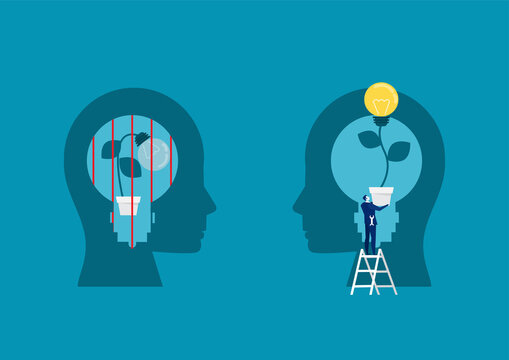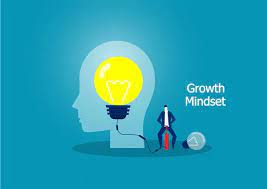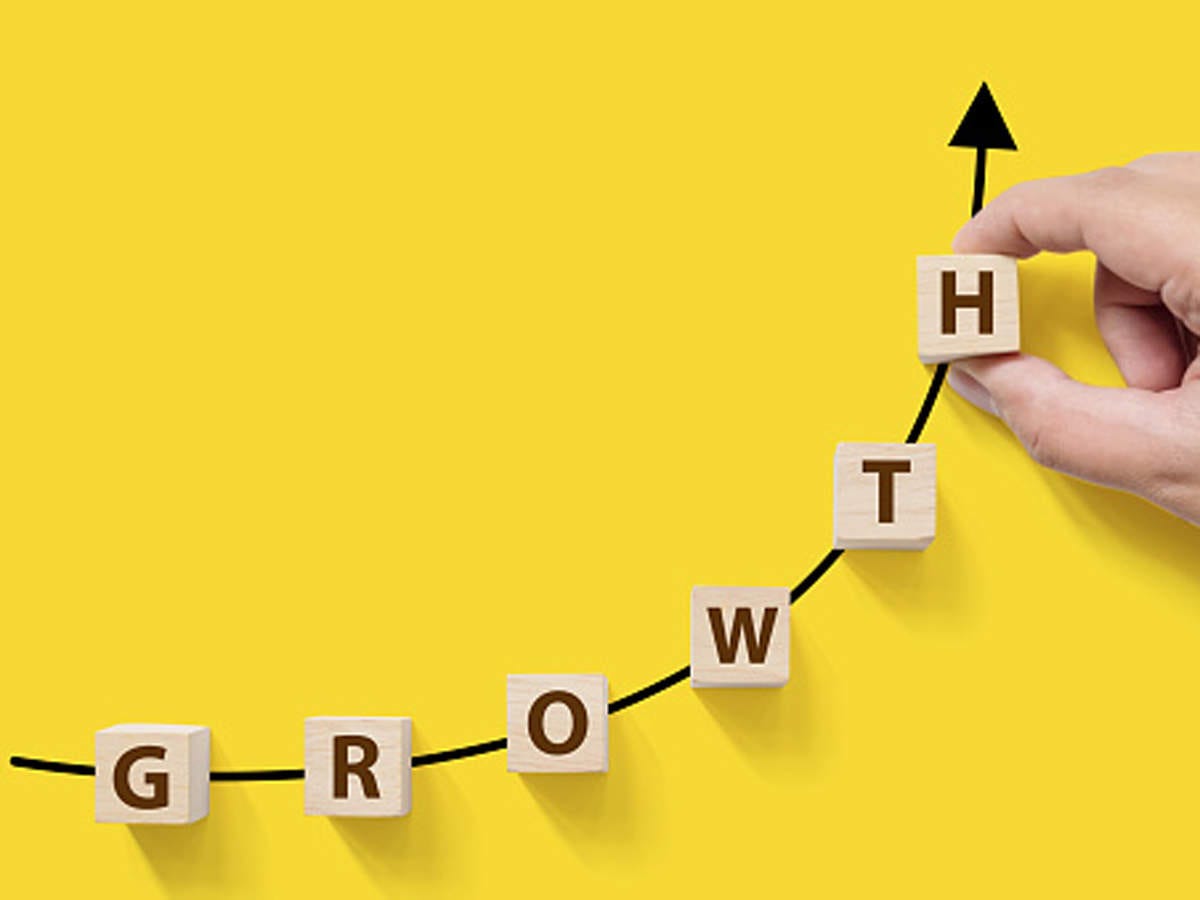You NEED to read MINDSET by Carol Dweck NOW!
My attempt at "selling" this AMAZING book to you (not literally)
Hi friends,
Welcome back to my newsletter. In today’s post, I’m going to discuss the GROWTH MINDSET and how it can improve our lives. This post is inspired by the book titled Mindset by Carol S. Dweck. I absolutely loved this book. It is so valuable and life-changing. In my few years of reading self-improvement books, I can certainly admit that this is the best and most influential book I have read. I urge you to check out this book. It’s going to change how you think and how you face difficulties in your life. I hope to convince you to read the book by discussing its ideas here. Let’s get started…
What is the book about?
Simply, this book distinguishes between two mindsets: the fixed mindset and the growth mindset. If you haven’t heard about these two mindsets, you are here for a treat. The book teaches how life-changing it can be to live by the growth mindset as it opens up any doors in our lives for success. Before I move on, let me address the question in your head. The fixed mindset is when we believe that certain things in life are set in stone such as our qualities, skills, personalities, etc. A common example is how smart a person is. In contrast, the growth mindset is believing that everything can be improved and learned over time through hard work, effort, perseverance, etc. Yes, there is still the element of raw talent. In the growth mindset, we’re not ignoring that, but accepting that and working hard to improve despite how much innate talent we have. It’s the difference between saying “it’s impossible I can’t do it” and “it seems challenging, I will take the first step”.
Fixed Mindset vs. Growth Mindset 🧠
Here’s a practical example:
The Scenario:
Suppose you are a well-performing student in a class. Your classmates generally view you as “smart” and you are aware of that. You’ve genuinely worked hard to do well in this class so it is reassuring to hear the compliments from your classmates. Now, one day your teacher gives the class an optional challenging question. You saw the problem and noticed it was an unconventional, difficult question.
🛑Fixed mindset view:
You are unsure of the answer, so you opt out of solving the question to avoid appearing incompetent or dumb in front of your classmates. You are scared of hurting your status.
💹Growth mindset view:
You realize the difficulty of the challenge. You are curious to know the answer, so you work together with your classmates and look through the textbook to try to solve the question. You are unable to find the exact answer. Then, you ask your teacher to explain the answer and you are happy to learn something new and challenging.
In this clear example, you can see that the fixed mindset student defines being smart as arranging all your success and avoiding failures. When you believe that your intelligence, personality, etc are inherently fixed, it forces you to constantly prove yourself to the world. A growth mindset student believes that intellectual skills can be developed and (in this example) they are getting “smarter” by challenging themselves and learning something new.
“Talented people”
In the fixed mindset, we see successful people as simply “talented” people that effortlessly got to where they are. We overlook their years of hard work and perseverance. The growth mindset allows us to realize that behind every great, there is a tremendous amount of hard work and commitment, which means that everyone has that potential.
How “EFFORT” is viewed from the two mindsets?
In the fixed mindset, the idea of effort is deemed as being dumb. In society, we often think that the smartest people are the ones that effortlessly perform a skill. When someone puts a lot of effort into studying, or practicing a skill, we assume they are not good at that thing. However, that is BS. A growth mindset teaches us that effort is required for being successful in anything in life. The geniuses in our world especially put in the most amount of effort; however, only their successes are put in the spotlight as it’s more attractive.
How can we engrave a growth mindset in our lives?
Just learn about the two mindsets
I hope you are intrigued by this growth mindset thing. You may ask “how can I apply this to my life?” Dweck says that just learning about these two mindsets can produce amazing results. I can affirm that this is true. Just by reading this book, I’ve changed the way I think and perceive challenges, struggles, etc (more about that later). Again, I think everyone should read this book. I wholeheartedly believe it will benefit you in your life. Thank me later.
Praise Correctly
Another way to inject a growth mindset into our lives and others is by praising more wisely. Let me explain. Most of us, including myself, praise others in a fixed mindset “ability” driven way. For example, you may compliment your brother when he solves a math problem by saying “Wow, you are so smart, you did the problem”. To most of us, this seems like a normal and positive compliment. However, in reality, your brother hears “If I don’t solve a problem, that means I’m not smart”, which discourages him from challenging himself. Instead, a more fruitful way to praise his work would be to focus on his effort and perseverance by saying “I like the way you tried all different strategies on that math problem until you finally solved it, great job”. This way, you praise their hard work and encourage them to continue persevering.
Mind Blowing, but true….
Telling people “smart” is a big mindset crime as they found in a study that telling people they are smart lowers their IQ. You might be laughing or confused right now. Let me put this idea into perspective. I am a victim of this crime as in the past, I capped my growth the moment I was given a desirable status or position such as being called “smart” or having a leadership position. In classrooms, for example, I always tried hard and did exceptionally well (great stuff). Once that was recognized and people committed the mindset crime by praising me in an ability/talent-driven way, it got to me. Since then, I was always on my guard. I had this “status” to protect. I wouldn’t raise my hand for a difficult question or put myself in a position where I may seem incompetent or dumb.
Similarly, in leadership positions that I acquired through effort and leadership qualities, I wouldn’t take risks for fear of having my position questioned. Looking back, I was a better leader when I wasn’t given any title or position as it was my genuine drive to lead that guided me. However, once I had a title, I developed an ego and feared any risks or challenges. Looking back, I could've been a better leader when I was the captain of my school’s cricket team and when I held leadership positions in clubs.
How has it changed my life?
I want to emphasize that this book had the most immediate impact on my life than any self-improvement books I’ve read (I’ve read quite a lot!) Fundamentally, it had a great impact on changing how I think and deal with challenges. For example, instead of complaining about my “unfair” conditions at work this summer, I took the initiative to make it more engaging and fulfilling for me. Instead of getting angry at train delays, I see it as extra time to enjoy reading.
As I hinted in the previous section, reading the book made me catch my fixed mindset behaviors. Now, I try to avoid getting attached to external views and focus on improving myself. Also, I have been trying to implement a growth mindset approach to praising people around me. I will admit that it is difficult as most people are generally inclined to ability-driven feedback including myself. It is a work in progress.
Final words…
I genuinely hope that you found a way to check out the book online or the physical copy after reading this post. I will have fulfilled my goal then. However, regardless of your choice, I still hope that you see the potential growth mindset cultivates. It’s imperative to know that shifting to a growth mindset is not an overnight process. Like any other mindset change, it takes time to cultivate. I certainly have started that process. It is incredible. I wish you good luck in your process. Thank you so much for reading my post. If you see the value in a growth mindset, please please please tell your friends and family about it, share this newsletter episode, and recommend the book. You will cause a positive change in their life and I am sure they’ll be thankful. Have a beautiful day!
Here are the links (free and paid) to the book and an illustration I love. In the book, the author recommends printing out this illustration and sticking it on your mirror or wall so you are reminded of the growth mindset every day.
(P.S. I’m super excited for Oppenheimer)








